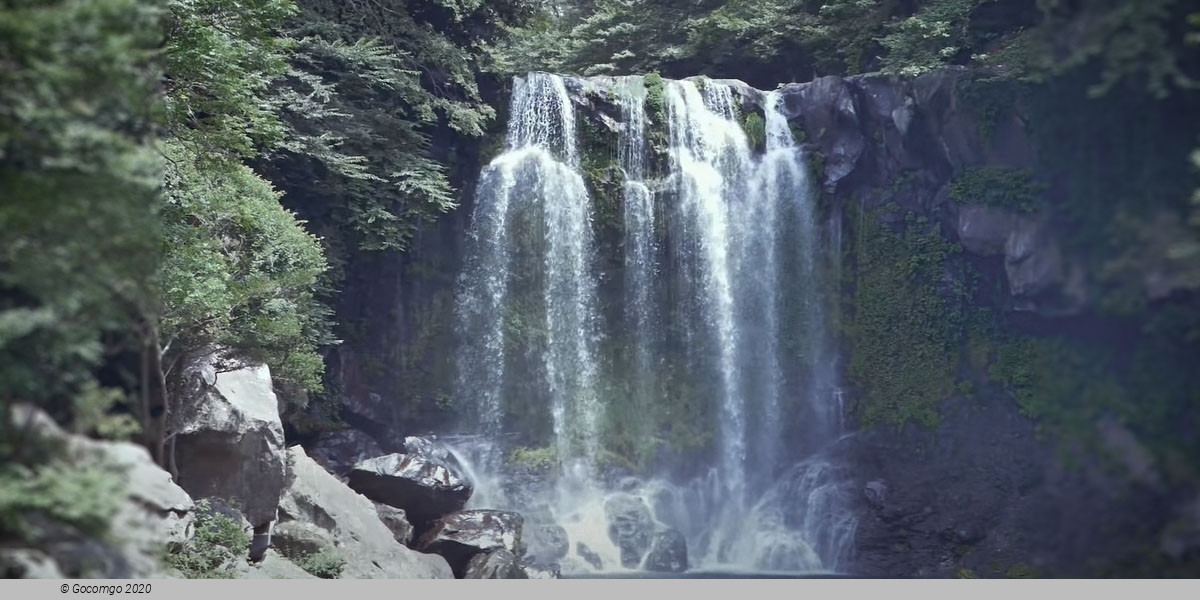Jeju Island

Jeju Island is the largest island in South Korea, located in the Jeju Province. The full name of Jeju Island is 'Jeju Special Self-Governing Province.' The island lies in the Korea Strait, below the Korean Peninsula, south of the South Jeolla Province. Jeju is the only self-governing province in South Korea, meaning that the province is run by local inhabitants instead of politicians from the mainland. The island was "formed by the eruption of an underwater volcano approximately 2 million years ago." It contains a natural world heritage site, the Jeju Volcanic Island and Lava Tubes.
History
The earliest known polity on the island was the kingdom of Tamna.
After Mongol invasions of Korea, the Mongol Empire established a base on Jeju Island and converted part of the island to a grazing area for the Mongol cavalry stationed there.
In the beginning of the 15th century, Jeju Island was subjected to the highly centralized rule of the Joseon dynasty. A travel ban was implemented for almost 200 years and many uprisings by Jeju Island residents were suppressed.
Jeju uprising
From 3 April 1948 to May 1949, the South Korean government conducted an anticommunist campaign to suppress an attempted uprising on the island. The main cause for the rebellion was the election scheduled for 10 May 1948, designed by the United Nations Temporary Commission on Korea (UNTCOK) to create a new government for all of Korea. The elections were only planned for the south of the country, the half of the peninsula under UNTCOK control. Fearing that the elections would further reinforce division, guerrilla fighters of the Workers' Party of South Korea (WPSK) reacted violently, attacking local police and rightist youth groups stationed on Jeju Island.
In 2008, bodies of victims of a massacre were discovered in a mass grave near Jeju International Airport.
Planned Kim Jong-Un visit
On 11 November 2018, It was announced that preparations were being made for North Korean leader Kim Jong-Un to visit Jeju during his upcoming visit to South Korea. Kim would be transported to Jeju via helicopter. The announcement came in after 200 tonnes of tangerines harvested in Jeju were flown to North Korea as a sign of appreciation for nearly 2 tonnes of North Korean mushrooms Kim gave to South Korea as a gift, following the September 2018 inter-Korean summit.
Archaeology
In November 2020, South Korean archeologists announced the discovery of 900-year-old lost slipway off the coast of Sinchangli. Researchers also discovered bright objects, coins and ceramics belong to the Northern Song Dynasty.

